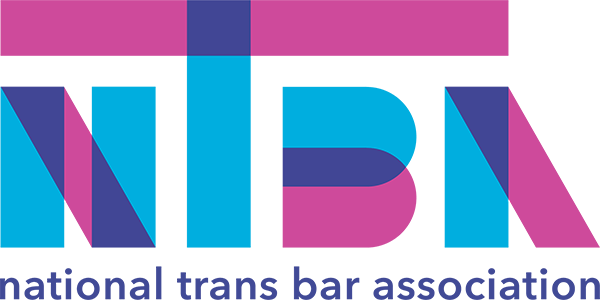May


LETTER FROM THE CO-CHAIRS
| To our NTBA Community: On Saturday April 29, the NTBA co-sponsored an event with the Bay Area Lawyers for Individual Freedom called the “Fight to Legalize Drag.” The event was planned by two San Francisco attorneys and drag performers, Michael Trung Nguyen and Ari Jones. Jones, who is trans and non-binary, is a director at Oasis Legal Services, which works with LGBTQ asylees and other immigrant survivors of trauma. The fundraiser supported grassroots organizations that will be on the frontlines in supporting trans youth and families in Tennessee when the trans healthcare ban takes effect: Inclusion Tennessee, the Tennessee Equality Project, and Protect Trans Health TN. Tennessee Senate Bill 1 is planned to go into effect on July 1, 2023, though the U.S. Department of Justice has recently filed a complaint and preliminary injunction against the ban. Jones and the most recent winner of RuPaul’s Drag Race, Sasha Colby, are reminders that many drag performers are trans and/or non-binary—despite the important efforts by the trans community to differentiate drag performance from trans identity. Colby, who is Native Hawaiian and māhū, brought national attention to this third gender identity in Hawai’i and the Polynesian islands. Some activists have emphasized that being māhū does not connote the same thing as “transgender”—a settler-colonial word when viewed from the perspective of those indigenous to the islands—even if an individual might personally identify with both. We would posit that, as Tennessee’s ban on drag performances shows, there are shared forms of violence between trans and other third-gender communities and drag performers. Our groups have linked fates; trans rights are under attack when drag artists are under attack. The parallel legislation in Tennessee forces us to consider the underlying principles of this hateful legislation. In both instances, gender expression is being policed for the nominal protection of children. But we know that nothing about non-conformity in gender expression—whether performance on stage or daily gender performance—can be called child abuse. By comparison, the bans on trans health care will exacerbate the physical manifestations of gender dysphoria for trans youth. And other anti-trans bans are damaging psychologically and emotionally. For instance, on the federal level, the House passed a bill that would ban trans women and girls from participating in sports in schools, isolating students from their peers. The NTBA will be hosting conversations about the ways these transphobic bills affect us at this year’s Trans Law Institute at Lavender Law. Until then, we hope you find strength and solidarity in your local communities, and reach out to us if you need any support. |
 |

